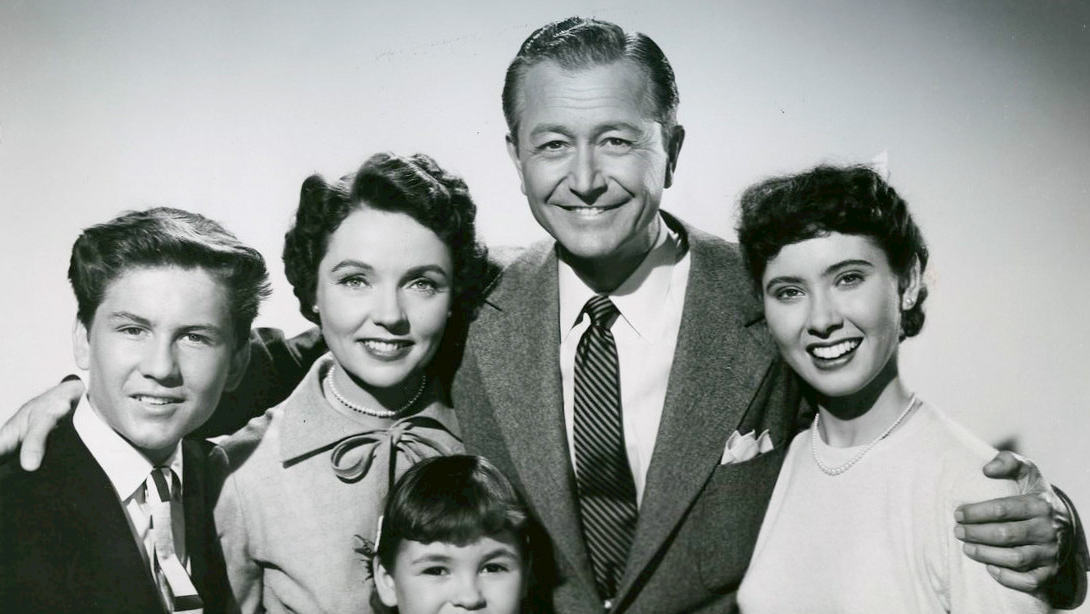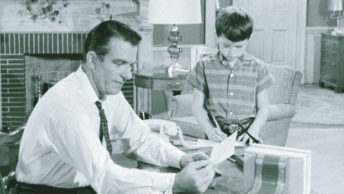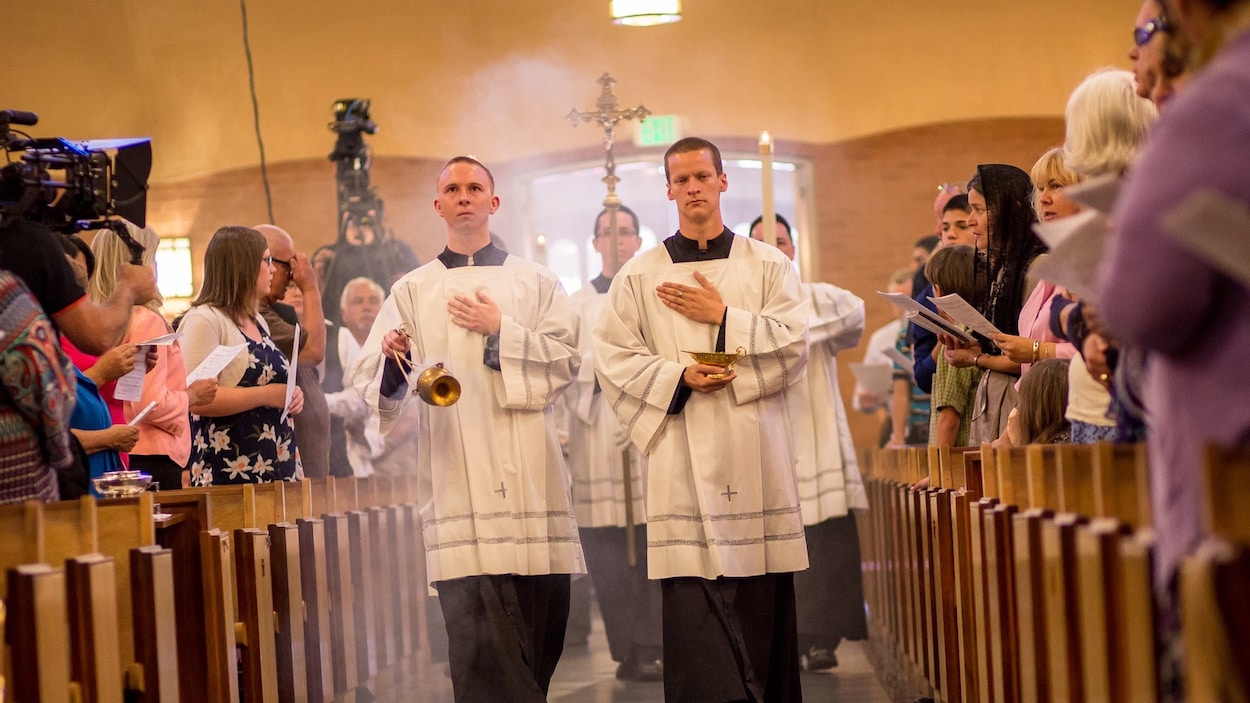During the 1950s, there was a radio and television show entitled Father Knows Best. The show followed the lives of the Andersons, a middle class family living in a Midwestern town. One history of the show characterized the Andersons as “truly an idealized family, the sort that viewers could relate to and emulate.”
The parents’ names were Margaret and Jim. Margaret was portrayed as a dear wife and mother possessing a “voice of reason.” Jim, on the other hand, was a thoughtful husband and father, always willing to offer sage advice whenever one (or more) of his children had a problem. Their three children were Betty, James, and Kathy. Betty was a teenage girl that when “every little thing happened—it was the worst thing that could ever happen.” James was the all-American boy always seeming to need “just a bit more” money. And Kathy? She whined, cried, and complained about her status in the family and made it known to anyone that would listen that she was “overlooked.” These many years later, my guess is that the show was popular because parents could relate and say: “Ah, yes, that Betty is my Susie. And that James is my Scott. And that Kathy, she is definitely my Grace.”
A wise man once said: “I think when you become a parent you go from being a star in the movie of your own life to the supporting player in the movie of someone else’s.” (Craig Ferguson, American on Purpose: The Improbable Adventures of an Unlikely Patriot) And as supporting players, we moms and dads want the best for our children and seek to pour out our love and wisdom upon them. But we also worry… We want them to take our advice. We want them to learn from our mistakes. And in the blur of it all, we remember the grief we put our own dear parents through.
Years ago, when I was about to become a father for the first time, I had a Franciscan priest friend. I remember how in the months leading up to my now oldest daughter’s birth, I confided to him my uncertainty over whether I would be a good father. During our conversations, he assured me that I would and told me that I had plenty of “wisdom” to impart. To this day, I can still remember his words: “And if she’s smart, hopefully she’ll listen to a fraction of it.” And then there were these golden words: “When she does— rejoice! And when she doesn’t, remember that you’re in the company of Jesus.”
On Father’s Day, a day on which we remember how our dear Fathers give and give and give to their children, the readings for the Solemnity of the Body and Blood of Christ (Corpus Christi) show us how Our Father in Heaven loves us and how He has given and given and given…
In the Book of Deuteronomy (8:2-3, 14-16), Moses reminded the people to “…not forget the LORD, your God, who brought you out of the land of Egypt, that place of slavery; who guided you through the vast and terrible desert with its saraph serpents and scorpions, its parched and waterless ground; who brought forth water for you from the flinty rock and fed you in the desert with manna…”
And in the Letter from St. Paul (1 Cor 10:16-17), the Apostle asks us pointed questions and reminds us of what the Lord does for us—-in the Eucharist: “The cup of blessing that we bless, is it not a participation in the blood of Christ? The bread that we break, is it not a participation in the body of Christ?”
Both of these bring us to this Gospel passage from St. John (6:51-58). Jesus has embarked upon what theologians refer to as The Bread of Life Discourse. Here, Jesus stands before the Jewish crowd that had amassed because of His teaching and preaching and miracles performed. Jesus, having been sent by the Father, is caring for the Children of God!!!
He must have felt like every parent does when they seek to impart important truths to their children: “I hope you’re listening, because what I’m about to tell you about is the mystery of love—God’s love.” What does He say? As we just heard, Jesus reveals the Eucharist. “Amen, amen, I say to you, unless you eat the flesh of the Son of Man and drink his blood, you do not have life within you.” To once more recall the words of St. Paul: “The cup of blessing that we bless, is it not a participation in the blood of Christ? The bread that we break, is it not a participation in the body of Christ?”
But in the end, we see that some stayed and others left. And this surely left Jesus both happy and sad. He was happy for those that accepted His teaching on the Eucharist. He was sad for the children that walked away from Him and would not believe.
And so, what can we make of all this? Do we see parallels between human parents made in the image and likeness of God—and the Creator? We should.
First, parenting is tough. We wonder whether our witness and love make a difference. For parenting may be likened to constructing a building that in our earthly life, we’ll never see completed. And so, we trust and pray and pray and pray.
Second, perhaps God feels the same way about each of us. For we’ve been told that: “For God so loved the world that he gave his only Son, so that everyone who believes in him might not perish but might have eternal life.” (Jn 3:16) Each day, His Spirit surrounds and invites us to find a deeper relationship with Him. And each day, through the ministry of our beloved priests, on altars throughout the world, He presents himself to us so that we might consume Him and have eternal life. When we receive Him, He must experience the greatest joy! But when we stay away, God is like the good Father in the Story of the Prodigal Son. With a knot in his stomach, He waits patiently for our return and rejoices!
In closing, given that today is Fathers’ Day, I wanted to share a “fatherly” reflection from a journalist who writes a column entitled “Annie’s Mailbox.” She notes that the author is unknown, but that she found it in the Danbury, Connecticut News Times. It traces a child’s perspective of their father from the age of 4 to 65.
“Father”
4 years old: My daddy can do anything.
7 years old: My dad knows a lot, a whole lot.
8 years old: My father doesn’t know quite everything.
12 years old: Oh, well, naturally, Father doesn’t know that, either.
14 years old: Father? Hopelessly old-fashioned.
21 years old: Oh, that man is out-of-date. What did you expect?
25 years old: He knows a little bit about it, but not much.
30 years old: Maybe we ought to find out what Dad thinks.
35 years old: A little patience. Let’s get Dad’s assessment before we do anything.
50 years old: I wonder what Dad would have thought about that. He was pretty smart.
60 years old: My dad knew absolutely everything!
65 years old: I’d give anything if Dad were here so I could talk this over with him. I really miss that man.








